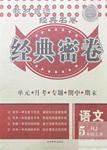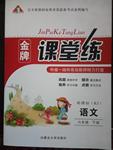题目内容
D
FOREIGN EXCHANGE
A CLASS OF THEIR OWN
| Name : Susan Lane Age : 22 Place : Reykjavik , Iceland , 1994. Cost : $7 ,000 Organization : AFS Experience : “ I think it was a turning point in my life . I began to understand more about my own culture by experiencing another culture and seeing how other people live.” |
| Name : Sara Small Age : 23 Place : Crivitz , Germany , 1996. Cost : $8,000 Organization : EF Foundation Experience : “I love the traveling and I made a lot of friends . I found the European school system to be hard but I am fluent now in German so it was worth it . I did miss my family and friends in Australia but I would love to do it again .” |
| Name : Leanne Smythe Age : 20 Place : Minnesota , America , 1994 . Cost : $6, 000 Organization : Southern Cross Culture Exchange Experience : “I learnt how to be really responsible . It was great to be on my own and I got on really well with the family I was with . I will definitely go back some day .” |
| Name : David Links Age : 16 Place : Stuttgart , Germany , 1996 Cost : $6,000 Organization : Southern Cross Cultural Exchange Experience : “I wanted to try something that was very different from Australia in culture . In Germany everything was different but I soon got settled . The family I was with were great and I really feel as though I have a second family .” |
| Name : Tom Jennings Age : 21 Place : Conflans , France , 1995. Cost : $7,000 Organization : Southern Cross Cultural Exchange Experience : “There were times when it was difficult but I liked it , experiencing a different culture. You just have to play each situation as it comes. If there is one thing you learn when you are on a student-exchange program it is how to take care of yourself.” |
| Name : Linda Marks Age : 19 Place : Chonburi Province , Thailand , 1994 Cost : $3,500 Organization : Rotary International Experience : “It’s like a roller-coaster ride , there are lots of ups and downs , but you always come back for more . I had a few problems but there was always someone to turn to and that was great .” |
67.The students who refer to both the good time and the bad time include ______.
A.Susan Lane and Sara Small B.Linda Marks and David Links
C.Tom Jennings and Linda Marks D.Leanne Smythe and Tom Jennings
68.The writing above would probably be ______.
A.the records of students’ activities
B.the foreign students’ name cards
C.the notice about a visit to foreign countries
D.the advertisement from an international travel service
69.The student who values learning another language is ______.
A.Linda Marks B.Sara Small C.Tom Jennings D.Leanne Smythe
70.How many students mention the culture difference they have experienced ?
A. Three . B.Four . C.Five . D.Six .
67---70 DABA

 同步学典一课多练系列答案
同步学典一课多练系列答案 经典密卷系列答案
经典密卷系列答案 金牌课堂练系列答案
金牌课堂练系列答案 三新快车金牌周周练系列答案
三新快车金牌周周练系列答案